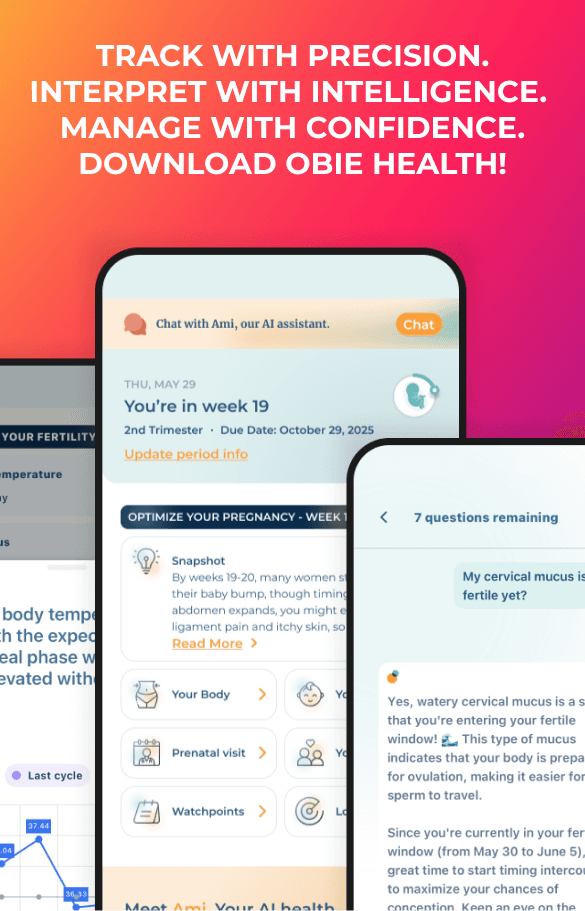Power of Ginger: Natural Remedy for Morning Sickness Relief
Food and Nutrition
Obie Editorial Team

The known 70% to 85% of women who experience nausea and vomiting during their first trimester of pregnancy may find relief in a natural, well-researched herb. Ginger has been shown to be safe and effective in the treatment of morning sickness with the added benefit of many other health-promoting properties. Ginger contains antioxidants which have been shown to protect against colon and ovarian cancer, anti-inflammatory compounds which can ease symptoms of arthritis, as well as immune-boosting effects. But most important and pertinent for pregnant women suffering from unpleasant nausea and vomiting is that ginger is a safe, natural, and well-researched remedy that can safely manage symptoms to promote a healthy, more comfortable pregnancy.
The best way to reap the nausea-reducing benefits of ginger during pregnancy is to find the way that works best for you. Here are some tips to try:
- Take 250 mg capsules 4 times daily. Note that for some, capsules may be too difficult to digest and could potentially worsen stomach discomfort.
- Bake it in food like banana bread as Meghan Markle did in Australia at the beginning of her pregnancy.
- Drink tea or ginger drinks.
- Homemade ginger lemonade can be made by adding freshly grated ginger and lemon juice to water with cane juice or honey for added sweetness.
- Homemade ginger ale can also be made by grating 1 tablespoon of fresh ginger root and squeezing the juice into carbonated water (plain or lemon flavored) and adding honey, cane sugar, or maple syrup for sweetness.
- Snack on small amounts of ginger candies, such as crystallized ginger, throughout the day. This may be one of the best-tolerated sources of ginger for women who are experiencing severe nausea and vomiting.
Since women with morning sickness may not be getting all of the nutrients they need from food during these times of upset stomach, a prenatal vitamin should be included every day to ensure all vitamins and minerals needs are met. If a vitamin pill is not tolerated, women can try prenatal gummy vitamins which are more easily digested.
Strategies to help ensure adequate nutrient intake during times of stomach discomfort include eating small, frequent meals. Keep snacks such as dry toast, cereal, and crackers near you at all times. Get up slowly in the morning and keep a snack like shredded wheat bite-size biscuits near your bedside to avoid moving around on an empty stomach. Make sure your stomach is not empty throughout the rest of the day by eating five or six small meals, including easy-to-digest foods such as bananas, rice, applesauce, and tea.
Women suffering from morning sickness should also strive to drink fluids as the body needs more water during the first few months of pregnancy. Try to drink beverages, soups, and fruit juices mixed with carbonated beverages (only if the carbonation helps- if not, stick with flat sodas or juices) to settle the stomach between meal. Avoid drinking beverages with meals, because they will fill up the stomach, make less room for food and may worsen feelings of nausea. For women who’ve found relief in ginger, add this soothing herb to beverages to help meet the recommended 6-8 eight-ounce servings of fluid per day.







